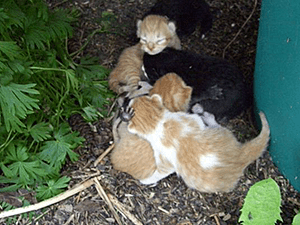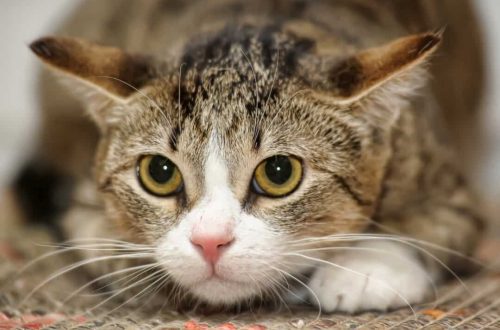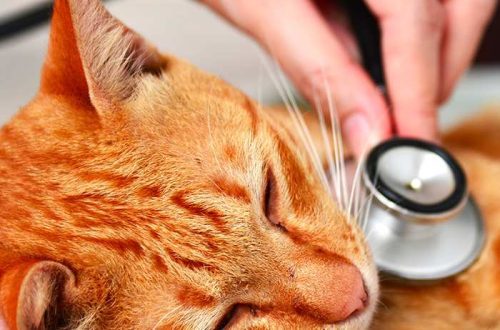
Kitten care without a cat
Obviously, caring for a small kitten without a cat is a rather complicated process that requires a lot of time, attention and knowledge from the owner. The most important stage is the first month of the baby’s life, and the owner, who will play the role of mother, may even consider taking a vacation during this time.
Newborn kittens
Caring for a newborn kitten without a cat mainly consists of a correct and regular feeding procedure, as well as providing comfortable and safe living conditions.
Food
Of course, the ideal option is to find a lactating cat. You can ask friends and acquaintances or seek help from a veterinary clinic or breeder. If you can’t find a cat, ask your doctor about purchasing a special formula, such as Royal Canin’s Babycat milk. You can feed kittens only with a specialized cat’s milk substitute! In no case should you feed them with cow’s milk: its composition does not meet the needs of the kitten.
In the first month of life, kittens should eat about seven times a day, every 2-3,5 hours, and it is important not to stray from the schedule day or night. This is a natural regimen for newborns, it is with such frequency that they would feed on mother’s milk.
Be careful when feeding: do not feed kittens on their back, in the same position as children. Only a horizontal position is allowed, in which the kitten lies on its stomach.
Emptying
Newborn kittens cannot control the acts of defecation and urination; the mother cat is responsible for these processes. She licks the kitten’s belly, thus causing a bowel movement. How to be an owner?
You will need a terry towel or cotton pad moistened with warm water or oil. Immediately after feeding for a minute, you need to massage the kitten’s stomach and perineum. On average, acts of defecation and urination occur 2-3 times a day.
Care
Newborn kittens cannot regulate their body temperature, which means that special attention should be paid to the space around them. In a box with babies, you can put a heating pad or a bottle of warm (not hot!) Water wrapped in a towel. She will keep the kittens warm. As soon as the water cools down, it should be changed. Take care that newborn kittens do not become cold and do not get heat stroke: they should not be left in direct sunlight, in a cool place and in a draft. After two or three weeks, it is worth starting to accustom them to room temperature, gradually lowering the temperature of the water in the bottle, and then removing it altogether.
If kittens have fleas, catch the parasites by hand. In no case should you use flea drops or any other medications: most of them are designed for animals two months old and older.
A month later
Caring for a monthly kitten without a cat is also based on a specific diet and careful care. It is at this time that the cat instills cleanliness in kittens, teaches them to wash and go to the tray.
Food
Starting from the fourth week, kittens should be gradually accustomed to adult food. But it is still too early to give them dry food. Some manufacturers offer various mousses and pastes as complementary foods. So, for example, in the Royal Canin line, this is Babycat Instinctive mousse for kittens. It is suitable for babies aged four weeks to four months.
Care
In a month, kittens begin to show character, are interested in the world around them and explore everything new. Be sure to start taming them so that they are not afraid of humans. Take them in your arms, gradually increasing the time of caresses from two to three minutes to 40 minutes a day.
At the age of four weeks, kittens can already wash themselves, and also learn to go to the tray. By the second point, they will have to be accustomed to the owner. Do not forget about the rules of hygiene: eye and claw care, as well as combing – animals should know these procedures from childhood.
Caring for kittens without a cat is painstaking, but extremely rewarding work. A little attention, care and affection, and the kittens will grow up healthy and beautiful!





